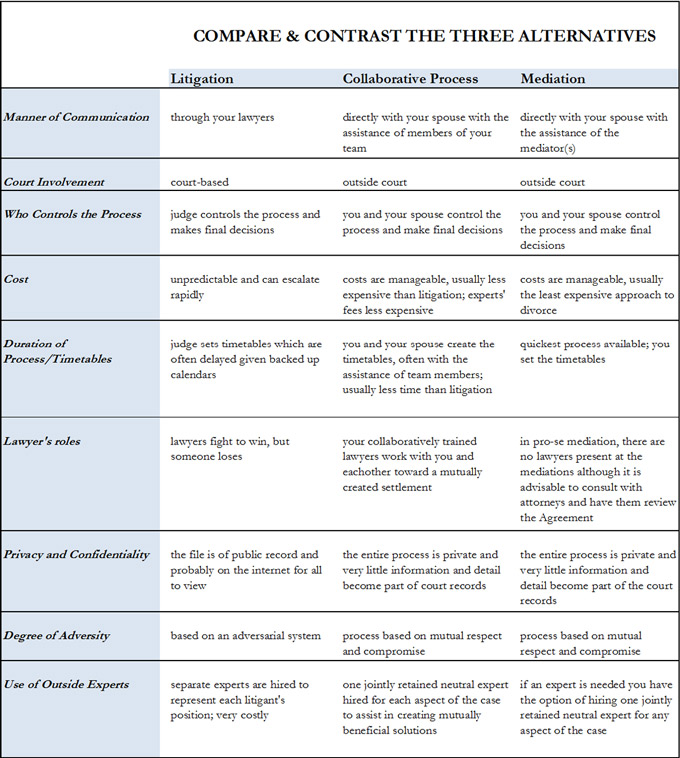Frequently Asked Questions
What is the Collaborative Process or Collaborative Divorce?
One of the principal goals of both the Collaborative Process and mediation is to eliminate the divorce trial, which is often both financially and emotionally exhausting. The Collaborative Process, or as it is often referred to, collaborative family law, is a non-adversarial method of resolving the issues involved in family law cases in a less divisive and less costly way. High levels of hostility and destruction to the family do not have to accompany the process.
The Collaborative Process offers divorcing couples an alternative to the bitterness and acrimony involved in litigation. Collaborative attorneys work toward settling your case through a team approach in a non-adversarial, informal environment utilizing settlement conferences and discussions. Both participants are represented by separate collaboratively trained legal counsel and all relevant information is voluntarily disclosed to each other.
What is the difference between Litigation, Mediation and The Collaborative Process?
Is the Collaborative Process right for me?
To determine whether Collaborative Divorce is right for you, ask yourself whether these values are important to you:
- I want to maintain a tone of respect, even when we disagree.
- I want to prioritize the needs of our children.
- My needs and those of my spouse require equal consideration, and I will listen objectively.
- I believe that working creatively and cooperatively solves issues.
- It is important to reach beyond today’s frustration and pain to plan for the future.
- I can behave ethically toward my spouse.
- I choose to maintain control of the divorce process with my spouse, and not relegate it to the courts.
If you can say “yes” to these basic principles, then the Collaborative Process may be right for you. Enid Miller Ponn is available to discuss your own personal circumstances with you to help you decide whether Collaborative Divorce is an option that would work for you.

